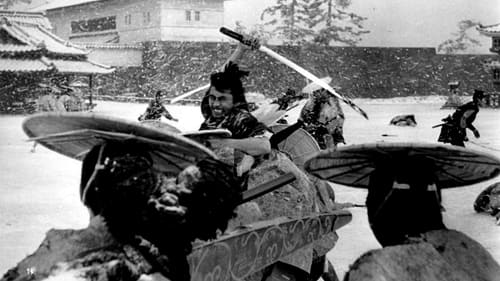
Chuzaemon Nishikawa
Japan, 1860. The men of the Mito clan, victims of the Ansei purge, anxiously prowl around the Sakurada Gate of Edo Castle with the intention of assassinating Naosuke Ii of Hikone, tairō of the Tokugawa shogunate and responsible for their misfortune.
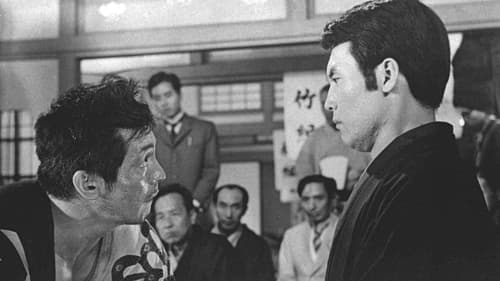
The film takes place at the junction of the two eras of Meiji and Taisho. Sakata Sankichi, an uneducated zori sandal maker, becomes a professional shogi player through his genius shogi skills and lives a fanatically devoted shogi game supported by the love of his family. This is the 3rd adaptation of Hideji Hojo's famous play.

When a corrupt magistrate rapes Oshima, Masa (Raizō Ichikawa) avenges her by killing the officer, becoming thereby a fugitive, haunted and grief-stricken by the fact that Oshima committed suicide. Going underground in the gambling world, perpetually hiding from the law, Masa eventually meets a young woman named Onaka, who looks exactly like Oshima. Tales having two look-alike heroines are a commonplace in Japanese period films, a plot affectation inherited from the kabuki theater. Based on a novel by Shin Hasegawa, Nakayama shichiri was already twice filmed in 1930, one version directed by Namio Ochiai, and from which less than 40 minutes survive, the other directed by Kyotaro Namiki. Both are silent films, preserved by the Makino film institute.

Grand Chamberlain
釈迦の生誕から入滅までを壮大なスケールで描いた歴史スペクタクル。世を憂えて修行の道に入ったシッダ太子は、悪魔の誘惑を退けついに悟りを開く。だが彼に嫉妬するダイバ・ダッタは、バラモンの法力を以て、シッダ太子と仏教徒を様々な方法で迫害していくが......。

One of Japan's most popular stories is the tale of Kutsukake Tokijiro, a traveling gambler who finds that he must take care of the wife and child of a yakuza he had been forced by the code of the gamblers to fight man to man. In a brilliant performance from super-star Ichikawa Raizo, with strong support from two of the greats from Toho, Shimura Takashi (7 Samurai) and Aratama Michiyo (Sword of Doom) the heartfelt story reaches new heights. Tokijiro, having learned the true nature of the boss to whom he was obligated for having spent a night and eaten at the gang's headquarters takes up arms against them in a running battle fought across the back roads of the entire nation. Another powerful rendition of this superb story, it is not to be missed!
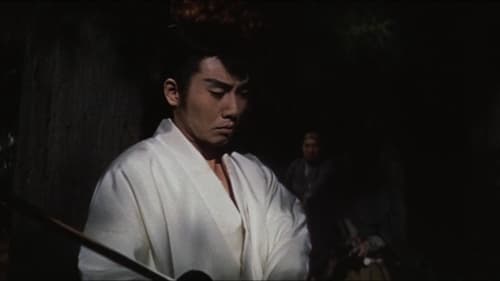
The sequel to Daibosatsu tôge (1960) and the second of the trilogy follows the adventures of Ryunosuke Tsukue after he is blinded.

This is the story of a blind masseur who tricks people, steals, and kills; he is the anti-Zatoichi

The exciting story of Jirocho and his yakuza gang that controlled the area of the Tokaido during the latter days of the samurai era. Awesome fighting from Katsu Shintaro as One-Eyed Ishimatsu highlights this great tale taken from Japanese history!

Wahei Morishima

Kihei Saruya

Matsuyama, Shinto priest
Lord Mito Mitsukuni, the vice-shogun of the whole country, left the family estate and went on a trip to various provinces with his students Sukesaburo Sasaki and Kakunoshin Atsumi. At an inn in Sunagawa, Mitsukuni exposed and punished an evil judge who had fallen in love with a townsman's wife. However, on the night he stayed at Nihonmatsu Castle, Mitsukuni found out that this incident was a performance organized especially for him…

Utaji heard that her ex-lover Seijirou would get married to Ochiyo a daughter of Ise-ya. She murdered Ochiyo and took over the Ise-ya's shop with Hikoroku a head clerk of Ise-ya. Moreover Utaji killed Hikoroku. But...

Suzunosuke faces perhaps his wildest foes. This evil gang is lead by a one-eyed birdman and other demonic creatures.

Film directed by Tadashi Ashihara

First part of the famous Dai-bosatsu toge trilogy, based on Kaizan Nakazato’s unfinished long series of novels (41 books, written from 1913 to 1941). Set in the last period of the Tokugawa Shogunate, Daibosatsu Toge tells the story of Tsuke Ryunosuke, a nihilistic swordmaster who doesnt hesitate to kill anyone, bad or good. Despite the authors explicit refusal, the series were later made into plays and movies several times.

An early fantasy film starring Tomisaburô Wakayama.

The second film in the 1953 trilogy based on the long novel series The Great Bodhisattva Pass.

Drama about a famous one-eyed, one-armed samurai swordsman of the middle of the Tokugawa period by the name of Tange Sazen. By chance, Tange gets an old pot in which the secret of the treasure of 1000000 ryos of gold is hidden. However, a bunch of different people hunt for the pot and Tange will have to apply his phenomenal fencing skills with the sword.

film directed by Tai Katô

Japanese film.

A village struggles to survive when the nearby lake becomes barren of fish.

A 1946 Japanese film directed by Keigo Kimura.

A lowly drunken samurai finds an abandoned baby in the woods and takes it home. A gift from a fox. But there's something special about the boy.

Directed by Daisuke Ito.

A story about Ômura Masujirô
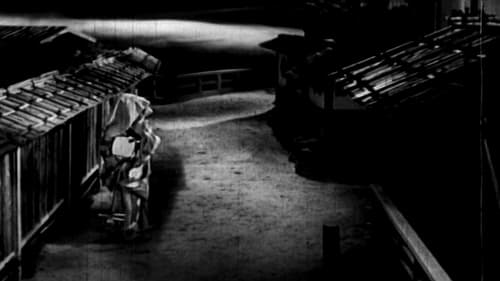
A quintessential example of the period "ghost cat" (bakeneko or kaibyo) movie, this was one of at least six such titles released by the studio Shinko Kinema between 1937-40 featuring Japan's first scream queen, Sumiko Suzuki. Here she plays Mitsue, the possessive onna-kabuki actress betrothed to apprentice shamisen player Seijiro. When one day Okiyo, a beautiful young girl of samurai class, is led to Seijiro's house by his lost cat Kuro, she becomes besotted with him. Dark jealous passions are invoked in Mitsue, which are intensified when Seijiro gifts Okiyo his precious shamisen. The cat is the first to suffer at the end of Mitsue's hairpin, but returns from the grave to assist Okiyo's younger sister Onui avenge her sister's murder.
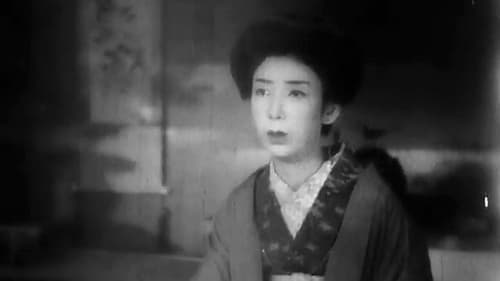
Munechika's father
Based on Soseki Natsume’s 1908 novel of the same title, Poppy is an ornately complicated story of desire and ambition. Fujio is beautiful, talented, well-heeled, and engaged to Munechika, a rising young diplomat. She has promised him a gold watch, a family heirloom, as an emblem of their engagement. But she falls in love with Ono, a student employed to tutor her in English, who is attracted by her beauty and wealth. Ono is himself bound by an engagement to Sayoko, the daughter of his mentor, Professor Inoue. The self-centered Fujio is ready to forsake everything for Ono, but he is prevailed upon to go ahead with his marriage to Sayoko. Fujio then offers the watch to Munechika who, perceiving Fujio’s true feelings, hurls the watch into the sea.

Adaptation of the novel by Osaragi Jirō. Again scripted by the legendary Yamanaka Sadao

Adaptation of the novel by Osaragi Jirō.

Directed by Daisuke Itō.

A lost film that tells a story of Jirokichi, a notorious thief

Jirokichi the Rat is a notorious thief. While on the run from the law, he discovers an unexpectedly honourable side of himself, and maybe some form of redemption.

A lost film telling a story of Jirokichi the Rat, a notorious thief

A Japanese silent film

Hyakusuke Ōnoki

Silent Japanese film.















